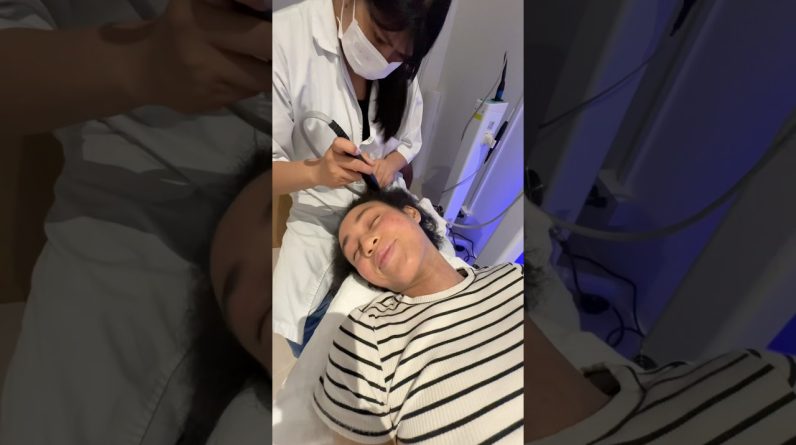Scabies:
Scabies is a contagious skin infestation caused by the microscopic mite Sarcoptes scabiei. It spreads through close physical contact, often in crowded environments or households. The mites burrow into the skin, laying eggs and causing intense itching, especially at night. Common symptoms include small red bumps, blisters, and thin, thread-like lines on the skin where the mites have burrowed. Scratching can lead to secondary bacterial infections. Treatment typically involves topical prescription creams or lotions to kill the mites and relieve itching.
Scabies is a highly contagious skin condition caused by the microscopic mite Sarcoptes scabiei. The mite burrows into the top layer of the skin, where it lays eggs and causes intense itching. Scabies is often transmitted through close personal contact, and the itching is a result of an allergic reaction to the mites, their eggs, and their waste. The characteristic symptoms of scabies include small, red, raised bumps, along with thin, wavy lines on the skin, which are the burrows created by the mites. Itching tends to be more severe at night and can lead to secondary bacterial infections if the skin is scratched excessively.
Eczema (Atopic Dermatitis):
Eczema is a chronic inflammatory skin condition that results in dry, itchy, and inflamed skin. It often begins in childhood and tends to flare up periodically throughout life. Symptoms can include red or brownish-gray patches, raised bumps, and scaling. Eczema is commonly triggered by irritants, allergens, stress, and changes in weather. The skin’s barrier function is compromised in eczema, leading to increased moisture loss and vulnerability to infections. Treatment involves moisturizing, avoiding triggers, using topical corticosteroids or immunomodulators to reduce inflammation, and managing any accompanying allergies.
Eczema, also known as atopic dermatitis, is a chronic inflammatory skin condition that results in red, itchy, and inflamed skin patches. It often occurs in people with a genetic predisposition to allergies, asthma, or hay fever. Eczema is characterized by periods of flare-ups and remissions. Common symptoms include dry, scaly skin, intense itching, redness, and sometimes oozing or crusting of the affected areas. The exact cause of eczema is not fully understood, but it is believed to involve a combination of genetic, environmental, and immune system factors.
Fungal Infection:
Fungal infections of the skin, also known as dermatophytoses or tinea infections, are caused by various types of fungi. Common examples include ringworm (tinea corporis), athlete’s foot (tinea pedis), and jock itch (tinea cruris). These infections often result in red, itchy, and sometimes scaly patches of skin. They can spread through direct contact with an infected person, animal, or contaminated surface. Treatment involves topical antifungal creams, powders, or oral medications depending on the severity and location of the infection.Fungal infections, often referred to as tinea or ringworm, are skin infections caused by various types of fungi. Despite its name, ringworm is not caused by a worm; rather, it’s called so due to the characteristic circular rash that develops on the skin. Fungal infections can affect different parts of the body, including the scalp, feet (athlete’s foot), groin (jock itch), and body.
Psoriasis:
Psoriasis is a chronic autoimmune disorder that causes rapid skin cell turnover, leading to the accumulation of thick, silvery-white scales and red patches on the skin’s surface. It is thought to be triggered by a combination of genetic predisposition and environmental factors. Psoriasis can appear anywhere on the body and is often accompanied by itching, discomfort, and even pain. There are several types of psoriasis, including plaque psoriasis (the most common type), guttate psoriasis, and pustular psoriasis. While there is no cure, various treatments aim to manage symptoms, such as topical treatments, phototherapy, oral medications, and biologic therapies.Psoriasis is a chronic autoimmune skin disorder that causes the rapid buildup of skin cells, leading to the formation of thick, silvery scales and red patches on the skin. The immune system mistakenly accelerates the skin cell turnover process, causing cells to accumulate on the surface before they mature, resulting in inflammation. Psoriasis can occur on any part of the body and is often associated with itching, burning, or soreness.
It’s important to note that while these descriptions provide a general overview of each condition, accurate diagnosis and treatment should be provided by a medical professional. If you suspect you have any of these conditions or other skin issues, it’s best to consult a healthcare provider for proper evaluation and guidance.
#draneelamurtaza #Itching #SkinAllergy
source







